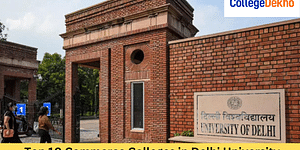Table of Contents
Emeritus Fellowship
The University Grants Commission floated the Scheme of “Emeritus Fellowship” in order to provide an opportunity to the superannuated teachers of universities, colleges and institutions approved under Section 2(f) and 12(B) of the UGC Act who have been actively engaged in research and teaching programmes in the preceding years to undertake research, without any restriction of position or pay scales.
Target Group:
Highly qualified and experienced, superannuated or likely to be superannuated within 6 months, teachers of recognized universities/colleges/institutions.
Post Graduate Indira Gandhi Scholarship Scheme For Single Girl Child
It is observed that number of girls as against boys in certain states is declining which is a matter of great concern. The females are even coerced to give birth to male child. In such circumstances education of women needs to be used and effective means for their empowerment and education will prepare them to have a control over their lives. The mindset which militates against the girl child could not keep pace with economic progress and literacy. The Govt. of India declared elementary education as a basic human right of every child. The Union Government of India has taken various steps to uplift the status of women by implementing various schemes including free education for girls. In order to achieve and promote girls education, UGC has introduced a Post Graduate Indira Gandhi Scholarship for single girl child with an aim to compensate direct costs of girl education to all levels especially for such girls who happen to be the only girl child in their families
Target group:
The girl students who are admitted to various non-professional PG courses in Universities / Colleges and happen to be the only girl child in the family without having any brother
Age:
Girl students up to the age of 30 years at the time of admission in PG courses are eligible.
Post Graduate Merit Scholarship Scheme For University Rank Holders In General & Honours Courses At Undergraduate Level
Higher Education has had played a very vital role in the history of nation building all over the world. It is amply clear that no rise in general standards of living and culture is possible without strengthening the higher education system in the country. It obviously calls for a multipronged strategy. There is a need to modernize our higher education system, and equally important to continuously attract young and talented students to pursue higher education. It is being increasingly observed that the brighter lot is not pursuing PostGraduate education in our institutions of higher learning. To emerge as a powerful nation, there is an urgent need to bring in talented boys and girls in the fold of Post-Graduate education by way of providing them good incentives in the form of scholarships. The UGC, therefore, introduced a Post-Graduate Merit Scholarship Scheme for University rank holders both in General and Honours Courses at Undergraduate level. The scholarship may be tenable for a period of two years to enable the rank holders of each university at undergraduate level to pursue their Master’s Degree. All universities/degree awarding institutions would be required to issue rank certificates to the toppers of the university (not at college level) both in General and Honours Courses namely B.A., B.Sc., and B.Com. The purpose of this scheme is to attract talent for pursuing post graduate studies besides strengthening the basic subjects – General as well as Honours, at Undergraduate level. The awardees, under this scheme, can pursue their Postgraduate programme in any area of specialization in any institution of higher learning in the country.
OTHER CONDITIONS:
The student who is awarded Post-graduate Scholarship will not be debarred from accepting any other scholarship. - Students desirous of leaving the studies mid-way without completing the PG degree will have to take prior approval from the UGC by submitting an application along with justification through the concerned university. - Any student who discontinues studies without prior approval of the UGC will have to refund the whole amount and the concerned institution will be responsible for this. - The university/college/institution has to submit a certificate of completion of the PG course in respect of each student availing this scholarship. - No extension is permissible beyond two years.
Research Fellowship
The Research Fellowship in Sciences for meritorious students (RFSMS) scheme of the UGC is open to candidates who have registered for Ph.D. in Science in Universities with Potential for Excellence/Centres with Potential for Excellence/Centres of Advance Studies and Department of Special Assistance identified by UGC.
Financial Assistance:
- Fellowship: @ Rs.8,000/-p.m.
- Contingency @ Rs.6,000/-p.a.
Post-doctoral Fellowships
Post-doctoral research is an important enabling step in grooming young researchers for launching an academic/research career. This is a transition phase from a largely supervisor directed student at doctoral level to an independent researcher for leadership position, particularly in academia. A post-doctoral stint also provides an opportunity to acquire new skills, broaden one's horizon and offers a platform for transiting into cross-disciplinary areas. Experience in other parts of the world has shown that university faculty is best inducted from among candidates who had a year or two of post-doctoral training and is generally considered an essential requirement. Mentoring for independent research is an indispensable element of post-doctoral training. Top rated institutions in our country which value research also follow this practice but it has not permeated widely. Leading research groups around the world usually have a good mix of post-doctoral fellows and doctoral students with the former bringing in a level of experience and maturity. However, in our country post-doctoral research culture has not caught on and is practiced only sporadically in a few selected places. Ironically, Ph. D's from leading institutions in India, particularly in basic sciences prefer seeking post-doctoral positions overseas. Within the country, a pdf position is mistakenly viewed as a mere parking opportunity while scouting for a regular appointment. With our higher education system poised for rapid and massive expansion in the years ahead and the establishment of many new science and technology institutions on the anvil, requirement of potential faculty with pdf experience will be very substantial. Thus, a `home grown' pdf program can be expected to partly redeem the expected short fall in trained faculty required for HEI's. It is in this context that UGC initiative to launch a prestigious pdf initiative, named after an illustrious scientist, is important and timely and fills a widely felt void. Several agencies like UGC/CSIR/DST/DBT and a few selected institutions have schemes to award pdfs (also called Research Associateships, RAs) through open call. A few merit-based research schemes funded by various agencies also have provision for pdf/RA. However, the scene is far from satisfactory and opportunities are not only inadequate but the schemes are not optimally structured. This scenario needs change. If is very necessary that a pdf scheme of this nature is run in a flexible mode, with fast track, on=line handling and decision making and must be tuned to the ground realities prevailing in our university system. In our context, with no clearly defined bench marks for thesis quality, a post-doctoral stint for many fresh Ph. D's, may be also an opportunity to overcome the deficiencies at doctoral level research as well as an opportunity to explore new areas of research in different settings. The process outlined below is proposed, keeping some of these factors in mind.
Rajiv Gandhi National Fellowship
The Rajiv Gandhi National Fellowship (RGNF) Scheme for Scheduled Caste and Scheduled Tribes is formulated and funded by Ministry of Social Justice & Empowerment and Ministry of Tribal Affairs. The scheme is open to candidates who belong to Scheduled Caste & Scheduled Tribe and wish to pursue higher studies such as regular and full time M.Phil. and Ph.D degrees in Sciences, Humanities, Social Sciences and Engineering & Technology. There are 1333 slots for Scheduled Caste and 667 slots for Scheduled Tribe candidates every year for all the subjects. 3% fellowships are reserved for the Physically Handicapped SC/ST candidates as per provision laid down by the Govt. of India.
TARGET GROUP:
The SC/ST Candidates who have passed the Post Graduate examination in concerned subject and who desire to pursue full-time research without JRF of UGC-NET or UGC-CSIR NET.
Junior Research Fellowship (JRF) and Research Associateship (RA) for Foreign Nationals
The scheme was initiated keeping in view the political and cultural bilateral relations of India with other developing countries of Asia, Africa and Latin America. The scheme has opened new vistas for foreign students and teachers, enabling them to come to India and undertake advanced studies and research in sciences, humanities and social sciences in Indian Universities
Target Group:
Students and teachers from developing countries of Asia/Africa and Latin America.
For Junior Research Fellowship (JRF):
35 years for male candidates as on 1 July of the year of application and 40 years for female candidates. The candidates must have at least a high-class master’s degree with a second-class bachelor’s degree, or second-class master’s degree with a first-class bachelor’s degree.
For Research Associateship (RA):
In case of male applicants the age should be 40 years as on 1st July of the year of application, and 45 years in the case of female candidates. The candidates must have a doctorate deg
Junior Research Fellowship in Engineering & Technology
The scheme is meant for candidates who wish to pursue research leading to a Ph.D. degree in engineering and technology. As of date, the University Grants Commission (UGC) or the Council of Scientific and Industrial Research (CSIR) are not conducting National Education Testing (NET) examinations in these fields. Therefore, M.Pharma and M.E., M.Tech. students are given this opportunity, through direct interview conducted by the Commission. There are 50 slots under this scheme per year
All Minimum qualifications are a master's degree in engineering/technology/pharmacy, with 55 per cent marks. GATE is not a mandatory condition for getting a research fellowship to pursue Ph.D. Candidates need to hold an M.E./M.Tech. degree. The age limit is 40 years as on 1 July of the year of award, extendable by five years for women and SC/ST candidates. A total of 22.5 per cent of the fellowships are reserved for candidates belonging to SC/ST who fulfil the requisite qualifications laid down for the award. In case of non-availability of SC/ST candidates, these slots will be made available to general candidates
Junior Research Fellowship (JRF) in Sciences, Humanities and Social Sciences
The Junior Research Fellowship (JRF) scheme of the University Grants Commission (UGC) is open to candidates who qualify in the National Eligibility Testing (NET) of the UGC and the UGC-Council of Scientific and Industrial Research (CSIR) joint test. However, please note that these are qualifying tests only and do not bestow a fellowship upon the candidate.
Target Group:
Candidates who have qualified in NET or the UGC-CSIR joint tests
Post Doctoral Fellowship to Women Candidates
The UGC has changed the name of the old scheme “Part Time Research Associateship for Women” as “Post Doctoral Fellowship for Women candidates”. The unemployed women candidates holding Ph.D. degree in their respective subject areas with an aim to accelerate the talented instincts of the women candidates to carry out the advanced studies and research.
Target Group:
Unemployed women with Ph.D. degrees and an aptitude for research.
Maulana Azad National Fellowship for Minority Students
The Maulana Azad National Fellowship for Minority Students is formulated and funded by Ministry of Minority Affairs. The scheme is open to candidates who belong to one of the Minority Community i.e. Muslim, Sikh, Parsi, Buddhist & Christian and wish to pursue higher studies such as regular and full time M.Phil/Ph.D. degrees in Sciences, Humanities, Social Sciences and Engineering & Technology. There are 756 slots every year for all the subjects. 3% fellowships are reserved for Physically Handicapped candidates belonging to Minority Candidates as per provision laid down by the Government of India.
TARGET GROUP:
The candidates belonging to one of the minority community who have passed the post graduation examination with minimum 50% marks in concerned subject and who desire to pursue full time research without JRF of UGC-NET or UGC-CSIR NET
Sir Gurudas Mahavidyalaya Scholarship Statistics 2025
| Gender | Male | Female |
|---|---|---|
| Total | 46 | 46 |
| OBC | 12 | 10 |
| SC | 15 | 12 |
| ST | 4 | 8 |
| Muslim | 8 | 3 |
| PWD | 3 | 1 |
| Minority Community | 5 | 3 |
Top Courses at Sir Gurudas Mahavidyalaya
Admission Updates for 2025
Nehru Arts and Science College
Coimbatore (Tamil Nadu)
Kongunadu Arts & Science College
Coimbatore (Tamil Nadu)
The Neotia University
Kolkata (West Bengal)
Brainware University
Kolkata (West Bengal)
ICA Edu Skills - Techno India University
Kolkata (West Bengal)
Similar Colleges
CCCBA Kolkata
Explore More Engineering Colleges in West Bengal
By Degree
By Specialization
- Colleges in Kolkata
- Sir Gurudas Mahavidyalaya
- Scholarship








